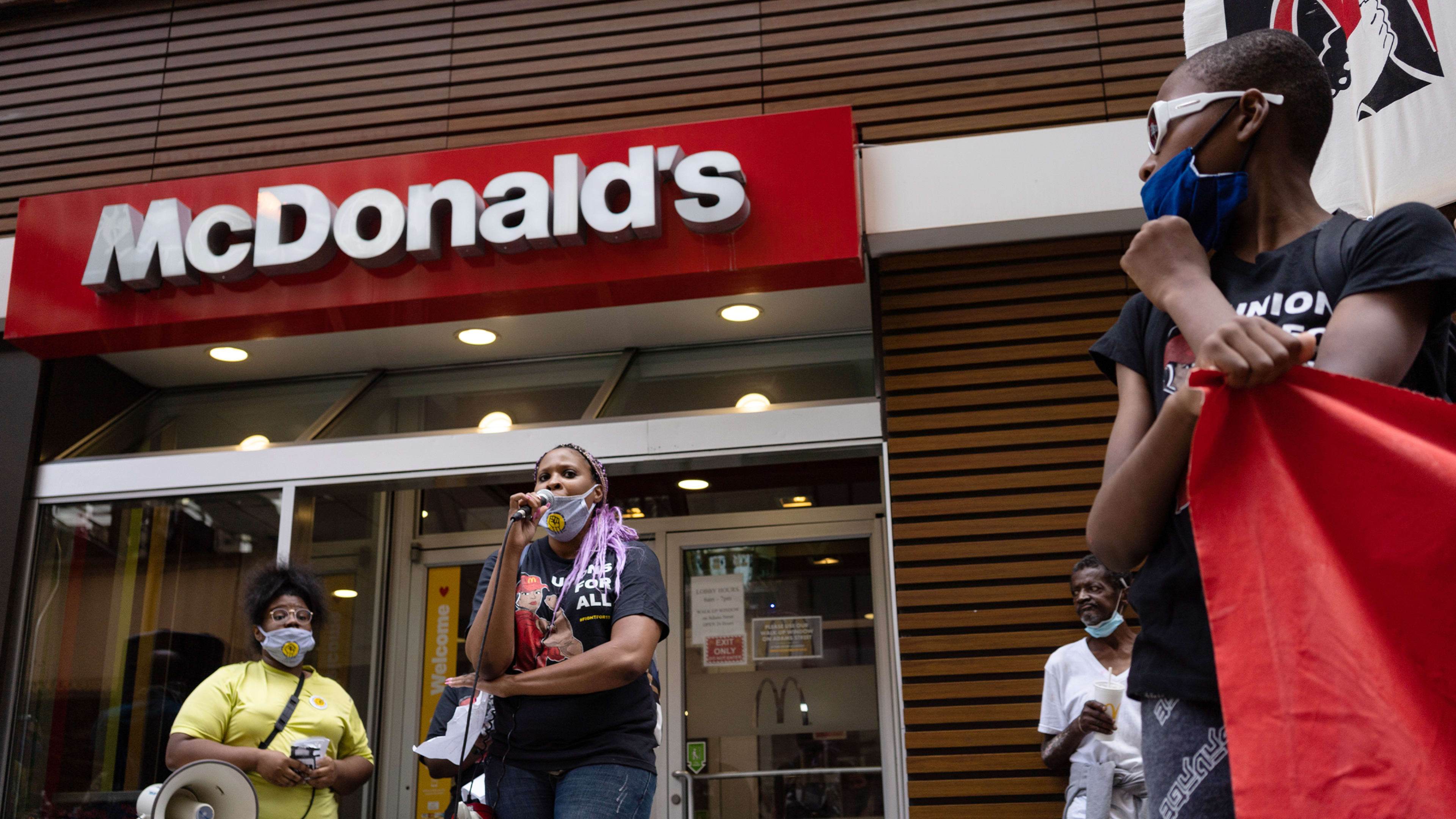Fast food workers in 15 cities across the country went on a one-day strike on February 16, to demand that their employers—including McDonald’s, Burger King, and Wendy’s—pay them $15 an hour and give them union rights.
The effort, which is part of the nationwide Fight for 15 movement, comes as lawmakers in Washington debate enacting a $15-an-hour federal minimum wage as part of President Biden’s first COVID-19 relief package.
The strikes also honor Black History Month by emphasizing the generations of low pay and lacking workplace protections among Black workers, historical inequities that have been worsened by the COVID-19 pandemic, and which have left Black Americans particularly vulnerable to both the virus and its economic devastation.
“Last year as we mourned the Black lives lost and communities of color destroyed by the pandemic, McDonald’s continued to prioritize its profits over the health and safety of workers,”says McDonald’s worker Taiwanna Milligan in a statement provided by Fight for 15. McDonald’s has continued to do the “bare minimum” during the pandemic, like making workers reuse or pay for new masks, she says. “I felt like we had to take our safety into our own hands, so I decided to walk off the job and go on strike.”
The federal minimum wage is $7.25; it hasn’t increased in more than 11 years, the longest period without a raise in the history of the minimum wage. Individual cities and states—including New York, Massachusetts, and California—have raised their minimum wage floor, and are all in the process of slowly increasing the minimum wage to $15 an hour.
Joe Biden had pledged support for a $15 federal minimum wage during his campaign, but now it’s unclear how quickly it might advance through Washington. His $1.9 trillion COVID-19 relief package could deliver on that promise. That bill was passed in the House last week with a plan to raise the minimum wage to $15 over four years, though it still faces an unclear future in the Senate. If the Senate can’t get a $15 minimum wage in this American Rescue Package, Maryland Senator Chris Van Hollen told The Hill that it’s “essential that we enact the $15 minimum wage in the coming weeks.”
For those on strike on Tuesday, $15 an hour is an urgent ask. The raise would increase the incomes of 32 million workers, including 59% percent of working families with incomes under the poverty line, according to the Economic Policy Institute. Nearly one third of all Black workers would receive a raise, and one out of four workers who would benefit would be a Black or Latina woman.
The fast food workers on strike Tuesday are in Charleston, Chicago, Detroit, Durham, Flint, Houston, Miami, Milwaukee, Oakland, Orlando, Raleigh, Sacramento, San Jose, St. Louis and Tampa. Home care and nursing home workers with the National Domestic Workers Alliance and the Service Employees International Union, as well as some workers not yet in a union, are also holding 15 actions in 15 cities in support of a $15 minimum wage on Tuesday.
Vermont Senator Bernie Sanders, who has been vocal about his support for a $15 minimum wage raise as part of the American Rescue Package, also spoke up on Tuesday to back the workers striking. “I stand in strong solidarity with fast food workers all over this country who are going on strike today to demand $15 an hour and a union,” he said on Twitter. “The Senate must raise the minimum wage to $15 an hour with 51 votes this year. We have got to end the crisis of starvation wages in America.”
Recognize your brand’s excellence by applying to this year’s Brands That Matter Awards before the early-rate deadline, May 3.
